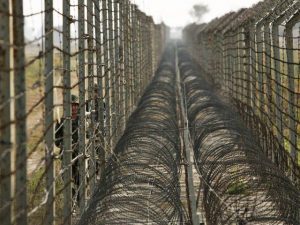When India broke the ceasefire on the LoC in February 2021, two people died.
ISPR claims that the Indian military is killing civilians as a result of a shift in geopolitical favor.

ISLAMABAD: In the first recorded ceasefire breach event since February 2021, when the two south Asian neighbors resumed their truce in the disputed territory, the Indian Army resorted to unjustified gunfire on a group of shepherds along the Line of Control (LoC) on Saturday.
The Indian Army killed two civilians and gravely injured another on Saturday when they opened fire on a group of shepherds in the Sattwal sector along the Line of Control, according to a statement released by the Indian military’s Inter-Services Public Relations (ISPR).
According to a statement released by the Indian Strategic Press Relations (ISPR), “the Indian Army, in a display of its usual inhumane approach towards innocent Kashmiris, opened indiscriminate fire onto a group of shepherds in Sattwal Sector.”
The military’s propaganda arm also said that “driven by a newfound geo-political patronage, Indian forces have embarked on a plan to take innocent lives to satiate their false narratives and concocted allegations.”
“While a strong protest is being launched with the Indian side, Pakistan reserves the right to respond back in manner of its choosing to protect Kashmiri lives in the LOC belt,” the statement continued.
The ISPR added that the Indian government should recognize the fundamental right of Kashmiris to farm their own land.
Later, Pakistani officials called the Indian charge d’ affaires to the Ministry of Foreign Affairs to express their outrage over India’s breach of the ceasefire.
The foreign ministry “condemned the horrific targeting of innocent civilians by the Indian army” and “underscored that such thoughtless crimes are in plain breach of the 2003 Ceasefire Understanding, renewed in February 2021).
It was also emphasized that attacks on civilians are a violation of human rights and humanitarian law on a global scale.
The Indian government was requested to conduct a thorough investigation into the incident, adhere to the Ceasefire Understanding, and prevent any further escalation along the Line of Control.
After secret negotiations between the two governments in February 2021, a ceasefire was declared. The ceasefire had held up until this time, despite the fact that the process had stalled. During the 26-month truce period, there were a few problems, but they were all handled by the parties’ preexisting system.
Pakistan’s official statement, in which it condemned the attack, raised concerns that tensions would rise along the Line of Control (LoC), the de facto border between Pakistan and India in Kashmir.
The ISPR’s oblique allusion to increased defense cooperation between India and the United States injected fresh complexity into the confrontation between Pakistan and India.
This week, Indian Prime Minister Narendra Modi visited Washington for the first time on a state visit. While there, he inked new defense deals that included plans for the transfer of cutting-edge military technology to India in addition to the sale of weapons.
Following their discussion, Modi and Biden issued a joint statement that included accusations of cross-border terrorism and the deployment of terrorist proxies on the part of Pakistan. The foreign office responded strongly, calling the measure “misleading,” “one-sided,” and “unwarranted” because of its focus on Pakistan. Despite tight cooperation with Pakistan in counter-terrorism measures, the foreign office was surprised by the US decision to accept the Indian stance.
The foreign office expressed grave worries about the transfer of defense technology to India, warning that it would spark an arms race in the area and upset the strategic balance.
Pakistan is concerned that growing defense relations between India and the United States may hurt its own national security. In spite of U.S. efforts to defend India against China through arms sales and technological transfers, Pakistan may be forced to bear the cost due to its antagonistic relations with India.









































